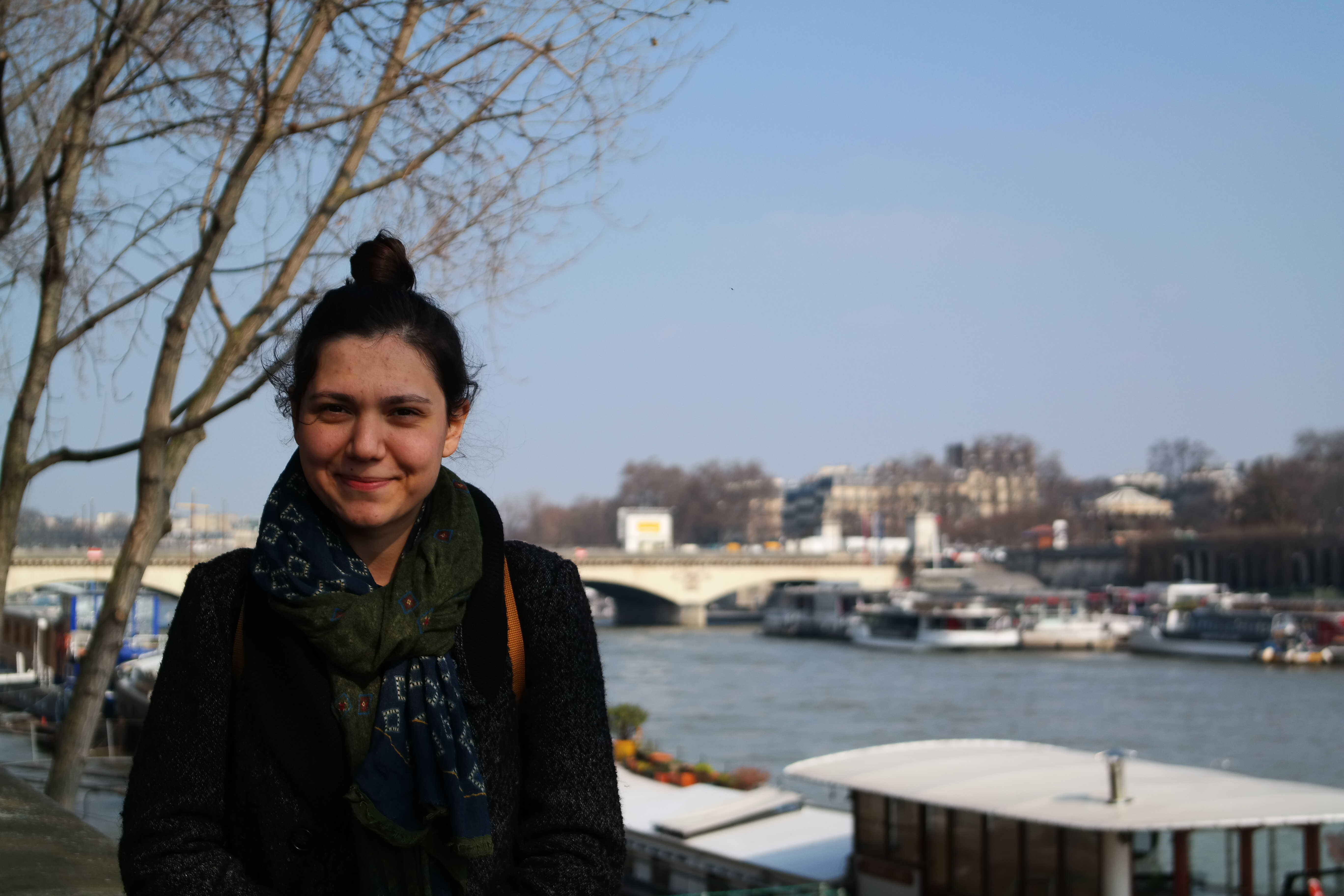
Merve in Paris, during her exchange year at Science Po Paris. Photo © courtesy of Merve Erdilmen.
Merve Erdilmen came to Canada from Turkey in 2014 as a research assistant to work in an international research project. She was in Canada for three months and says that she enjoyed the country so much and saw so many opportunities that she wanted to come back.
Erdilmen moved from Turkey to pursue her master’s degree at McGill university and it is now in her first year of a PhD program at the same university.
She tells that she first heard about the issues refugees go through from her mother’s family, who were once refugees in Bulgaria. They were an ethnic minority there and were forced to move back to Turkey.
Back to Turkey, her father worked for the army and every three years her family had to move to a different place. The experience of moving all the time made Erdilmen think a lot about what it means to be in a transition position.
She studied sociology in her home country and the focus of her study was refugees, coming especially from Syrian and Iraq. After her first experience in Canada, when she witnessed how the country deals with refugee issues, Erdilmen became even more interested in studying more about the topic.
Her PhD focuses on localization of humanitarian health in Turkey and during the summer she will be part of LERRN’s team in Tanzania, working on localization of humanitarian health in the African country.
“I thought it would be an amazing opportunity to actually see and have experience in the topic,” says Erdilmen. “I think this project is so special because it provides us a chance to see the links between global north and south and also see how different actors within the humanitarian system work together.”
Although Erdilmen says that she has read a lot about politics, history and refugee issues, LERRN’s project will give her an opportunity to work with locals and see the reality of refugees who are living at refugee camps in the country.
“Local context is very different. Local NGO’s have many different expectations and needs, but unfortunately they do not have that much power to make their voices heard and I think that this project will have this,” she says.
This will be Erdilmen’s first time in Tanzania. For her, LERRN’s project is especially important because she believes it will provide an opportunity to see how Canada and the four partner countries can collaborate and learn from each other.
“I think this is the most important part of the project. I can say that in the context of Turkey that there are not many projects like this,” says Erdilmen.